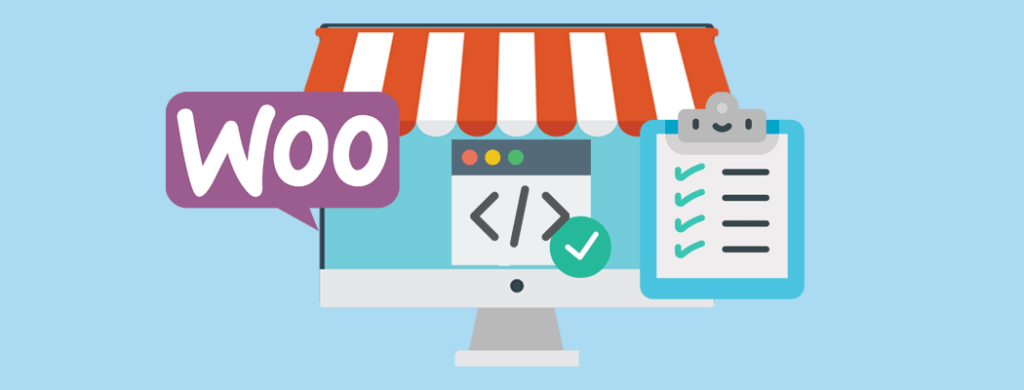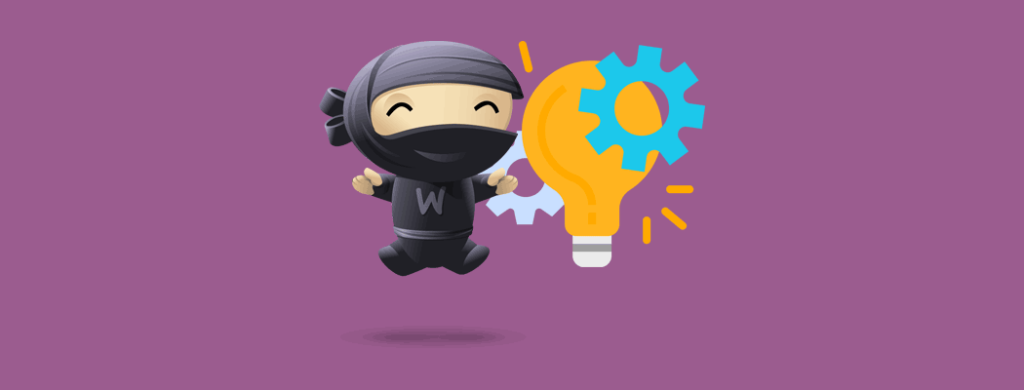WooCommerce plugin development is a critical aspect of building a successful online store. However, this process is fraught with challenges that can hinder progress.
At Progressus, we specialise in crafting bespoke plugin solutions and API integrations that seamlessly blend with WooCommerce’s ecosystem.
This article delves into the common hurdles faced during WooCommerce plugin development and outlines effective strategies to overcome them. Our aim is to empower you with the knowledge to create a more dynamic and efficient online store, ensuring an exceptional shopping experience for your customers.
The Landscape of WooCommerce Plugin Development
WooCommerce’s vast ecosystem provides a fertile ground for customization through plugins. These plugins are the lifeblood of WooCommerce, enabling functionalities such as payment gateways, shipping methods and inventory management.
But as previously touched upon, the path to developing these plugins is strewn with obstacles. From ensuring compatibility with various versions of WordPress and WooCommerce to upholding high standards of code quality, developers face a multitude of challenges.
Understanding these challenges is crucial for navigating the complex terrain of WooCommerce plugin development.
Common Challenges in WooCommerce Plugin Development
Navigating the complexities of WooCommerce plugin development involves addressing a variety of challenges, from ensuring compatibility across versions to maintaining code quality and security.
Below are details about these common obstacles and their impact on creating functional, secure, and efficient plugins for an enhanced online store experience.
1. Compatibility Issues
Ensuring that your plugin remains compatible with different versions of WordPress and WooCommerce is a significant challenge. As these platforms are constantly updated, developers need to keep their plugins up-to-date to prevent compatibility issues.
This involves regularly testing the plugin with new versions and making necessary adjustments to the code. Failure to maintain compatibility can lead to broken functionality and a poor user experience.
2. Integration with Other Plugins
The WooCommerce ecosystem is vast, with thousands of plugins available. Developers must ensure that their plugin does not conflict with other popular plugins. This requires extensive testing to identify potential conflicts and resolve them.
It’s important to consider common use cases and combinations of plugins that users might have installed on their sites.
3. Code Quality and Security
Writing high-quality, secure code is crucial in plugin development. Poorly written code can lead to bugs, security vulnerabilities and performance issues. Developers should follow best coding practices such as using sanitised inputs and validating outputs, to prevent security threats like SQL injections and cross-site scripting attacks.
Regular code reviews and security audits can help maintain high standards of code quality and security.
4. Performance Optimization
A plugin that slows down a website can negatively impact user experience and search engine rankings. Developers need to optimise their code to ensure that it does not affect the site’s performance. This includes minimising the use of resources, optimising database queries and using efficient coding techniques.
5. Scalability and Flexibility
As businesses grow, their needs change. A well-designed plugin should be scalable and flexible to accommodate these evolving requirements. This means using modular code that can be easily extended or modified without requiring a complete overhaul of the plugin.
6. User Experience and Interface Design
Creating a user-friendly interface is essential for a successful plugin. Developers need to consider the user experience and design intuitive settings and options that are easy to navigate.
A well-designed interface can greatly enhance the usability of the plugin and increase user satisfaction.
7. Updates and Maintenance
Regular updates and maintenance are necessary to keep the plugin functioning properly. This includes fixing bugs, adding new features, and ensuring compatibility with the latest versions of WordPress and WooCommerce.
Developers need to have a plan in place for ongoing support and updates to keep their plugin relevant and useful.
8. Localization and Internationalisation
To reach a global audience, it’s important to make your plugin translation-ready. This involves using localization functions in the code and providing translation files for different languages. By internationalising your plugin, you can make it accessible to users worldwide.
Strategies to Overcome Challenges in WooCommerce Plugin Development
To tackle the hurdles of WooCommerce plugin development, a strategic approach encompassing best practices and thorough testing is essential. Below are key strategies to develop robust, secure, and high-performing plugins, ensuring an optimised shopping experience for users.
1. Thorough Testing
Testing is crucial for the success of WooCommerce plugins, ensuring functionality, seamless integration and compatibility. Here are details on why it’s essential to do comprehensive testing, including unit, integration, compatibility and user testing, to identify and address issues early in the development process.
- Unit Testing: This involves testing individual components of the plugin to ensure they function correctly in isolation. By isolating each part of the plugin, developers can identify and fix issues at a granular level, leading to a more robust and reliable plugin.
- Integration Testing: This step assesses how well the plugin integrates with WordPress, WooCommerce, and other plugins. It’s crucial to ensure that the plugin not only works well on its own but also interacts seamlessly with the broader ecosystem, avoiding conflicts and ensuring compatibility.
- Compatibility Testing: Given the frequent updates to WordPress and WooCommerce, it’s essential to test the plugin across different versions to ensure compatibility. This helps prevent issues that could arise from updates to the core platforms, ensuring a smooth user experience.
- User Testing: Involving real users in the testing process can provide valuable feedback on the usability and functionality of the plugin. This can help identify any issues that might not be apparent in technical testing and ensure that the plugin meets the needs of its intended audience.
2. Best Practices for Code Quality
High code quality is vital for efficient, secure, and maintainable WooCommerce plugins. It’s important to emphasise adherence to best practices such as WordPress coding standards, regular code reviews, and code refactoring to ensure well-structured and secure plugins.
- WordPress Coding Standards: Adhering to the coding standards set by WordPress is vital for maintaining consistency and readability in the code. This not only makes the code easier to understand and maintain but also ensures compatibility with the WordPress ecosystem.
- Code Reviews: Regularly reviewing code is a proactive approach to identifying and fixing issues early in the development process. This collaborative practice helps maintain high standards of code quality and fosters a culture of continuous improvement.
- Refactoring: Periodically refactoring the code can help improve its structure and readability. This involves reorganising the code to make it more efficient and easier to maintain, without changing its functionality.
- Use of Version Control: Using version control systems like Git allows developers to track changes in the code and collaborate more effectively. It also provides a safety net, allowing developers to revert to previous versions if something goes wrong.
3. Security and Compliance
Security and compliance are paramount in WooCommerce plugin development. Regular security audits, adherence to data protection regulations, and the implementation of security measures are crucial to protect your online store and user data.
- Regular Security Audits: Conducting security audits is crucial to identify vulnerabilities in a plugin. By proactively addressing these issues, developers can fortify the plugin against potential attacks, ensuring the safety of the website and its users.
- Data Protection Regulations: Compliance with regulations like the General Data Protection Regulation (GDPR) is essential for protecting user data. Ensuring that the plugin adheres to these regulations is critical for maintaining user trust and avoiding legal repercussions.
- Use of Security Plugins: Using security plugins can help protect the website from common threats. These plugins can provide features like firewalls, malware scanning and security hardening to enhance the overall security of the site.
4. Performance Optimization
Optimising plugin performance is key to enhancing user experience and search engine rankings. Here are optimisation techniques including efficient database queries, caching and asset minimization to improve the speed and responsiveness of WooCommerce stores.
- Efficient Database Queries: Optimising database queries is key to reducing load times and improving the overall performance of the plugin. By ensuring that queries are efficient and well-structured, developers can minimise the impact on the website’s speed.
- Caching Techniques: Implementing caching can significantly enhance the performance of the plugin. By storing frequently accessed data in cache, the plugin can reduce the need for repeated database queries, leading to faster load times.
- Lazy Loading and Asset Minimization: Employing lazy loading for images and minimising the size of CSS and JavaScript files can further optimise the performance of the plugin. These techniques help reduce the amount of data that needs to be loaded initially, improving page load times and enhancing the user experience.
5. Scalability and Flexibility
Designing WooCommerce plugins with scalability and flexibility in mind is crucial for adapting to changing business needs. Modular design and the use of hooks and filters for creating adaptable and future-proof plugins is also important.
- Modular Design: Developing the plugin with a modular design allows for easier scalability and flexibility. By organising the code into separate modules, developers can add or modify features without affecting the core functionality of the plugin.
- Use of Hooks and Filters: Using hooks and filters provided by WordPress allows developers to extend the functionality of the plugin without directly modifying the core code. This makes the plugin more adaptable to changes and easier to integrate with other plugins or themes.
6. User Experience and Interface Design
A user-friendly interface is essential for the success of a WooCommerce plugin. Here are the principles of user experience and interface design, focusing on intuitive navigation, clear settings and appealing layouts to enhance the shopping experience.
- User-Centric Design: Focusing on the user’s needs and preferences is crucial in designing the interface of the plugin. Developers should consider the user’s journey and design intuitive settings and options that are easy to navigate.
- Feedback and Iteration: Gathering user feedback and iterating on the design based on this feedback can help refine the interface and improve the overall user experience.
7. Documentation and Support
Comprehensive documentation and responsive support are crucial for the effective use of WooCommerce plugins. This subsection highlights the importance of clear documentation and timely support to assist users with installation, configuration and troubleshooting.
- Comprehensive Documentation: Providing clear and detailed documentation for the plugin is essential for both users and developers. This should include installation instructions, usage guides, and explanations of features and settings.
- Responsive Support: Offering responsive support can help address user issues and questions promptly. This can include providing a support forum, email support or live chat to assist users with any problems they may encounter.
8. Localization and Internationalisation
To reach a global audience, WooCommerce plugins must be accessible in multiple languages and adaptable to different cultures. This subsection discusses the significance of localisation and internationalisation, including translation-ready code and cultural considerations, for expanding the plugin’s reach and catering to diverse users.
- Translation-Ready Code: Making the plugin translation-ready involves using localisation functions in the code and providing translation files for different languages. This allows the plugin to be easily translated into other languages, making it accessible to a wider audience.
- Cultural Considerations: When internationalising the plugin, it’s important to consider cultural differences and ensure that the plugin is appropriate for different regions. This can include adapting the interface, formats and content to suit different cultural norms.
Progressus: Your WooCommerce Plugin Development Partner
At Progressus, we excel in navigating the complexities of WooCommerce plugin development. Our team of platinum certified WooExperts specialise in crafting custom plugins and API integrations that seamlessly enhance the functionality of WooCommerce stores.
We are committed to upholding the highest standards of code quality, security and compatibility. Our successful projects demonstrate our ability to tackle intricate requirements and deliver exceptional results.
By partnering with us, you gain access to a wealth of experience and expertise, ensuring that your business remains at the forefront of the eCommerce and WooCommerce landscapes.
Feel free to connect with us with details about your project and we will be happy to provide you with a quote.
Overcoming Challenges in WooCommerce Plugin Development
Thorough testing, adherence to best practices, and a focus on performance optimization are key to creating robust and efficient plugins. These are also ways to overcome challenges in WooCommerce plugin development, including a deep understanding of the ecosystem.
Progressus is your ideal partner in this journey, offering expert solutions and support to navigate the complexities of plugin development.
If you’re looking to elevate your WooCommerce business with custom plugins and seamless API integrations, look no further than Progressus. Request a quote today and embark on the path to a more dynamic and successful eCommerce experience.


